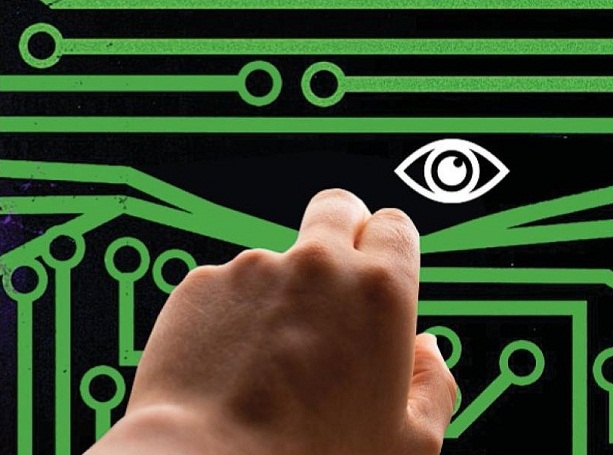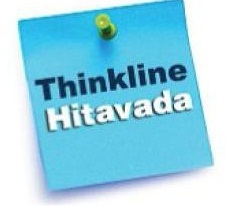Non-State Surveillance And End Of Privacy
| Date :14-Mar-2021 |

By KARTIK LOKHANDE :
Often one hears of X or Y nationState turning into a ‘Surveillance State’ or ‘police state’. The activists vociferous about the use of these terms often are associated with groups that come up with reports projecting one or the other country as acting against privacy of people or suppressing the so-called democratization of data. However, none of these activists sadly raise the question as to ‘who’ is helping such nation-States with technologies used in ‘surveillance’? Here comes the role of non-State actors! There are technology companies that have emerged fast especially over the past two decades.

These companies have been reaching out to various Governments, political groups, commercial organisations, militaries, and even the religious identities across the world, to sell their ‘products’. These products range from trojan softwares to Artificial Intelligence (AI) models to machine learning tools to simply the applications that can gather all necessary information of targeted groups of users or communities without even the ‘targets’ knowing about it. Several questions arise in one’s mind when one thinks of going deeper into this issue. The situation is not as simple as mere collection of data through various mobile phone applications used by people. There is something more. As many may (or, may not) know, such data collected is used to develop certain models that map the behavioural patterns of people or groups of people. Once those models are developed by companies – the non-State actors – these are sold to various entities and Governments for ‘spying’.
The Governments or other entities, which are the big consumers of such ‘products’, use those to their own benefit by way of planning campaigns or even floating content to impact the thinking, psychological and emotional response to certain issues. This ‘manufacturing’ of response favours the user of such ‘products’, and dims the prospects of nonusers. If one takes the recent example of the US elections, one could gauge use of such ‘products’ and also massive use of digital platforms. There were allegations of Russian, Chinese, and even North Korean involvement through high-end technological products. Apart from the non-State actors, these countries were named as State actors trying to influence the US elections. The word ‘fact-check’ was used often. True that technology can help in checking if some video or photo or audio is authentic. But, it is also true that technology controlled to a great extent by non-State actors can erase some references from public memory and only the memories or events that can boost the interests of technological giants can be peddled again and again on, for instance, on search engines. So, in such cases even the ‘fact-check’ exercise cannot be viewed as completely impartial in all cases. For, what people in the business of fact-checking view as ‘fact’ may be, in reality, a ‘manufactured fact’!
There is another dimension to the story. The countries like China, North Korea, Russia, US have often been accused of sponsoring various technological companies to develop products that can further the geopolitical and economic interests of respective countries. There is a cross-investment pattern too. However, one cannot deny the existence of ‘big tech’ that wield the power far more than the Governments of the smaller countries or developing or under-developed countries.
These are non-State actors. Now, let’s have a brief take on the issue of privacy. Often, people feel that it is the responsibility of respective Governments to ensure privacy of their data. At the same time, paradoxically, the same people surrender their data privacy to non-State actors like companies when they casually press the tab ‘Allow’ or ‘I Agree’ while downloading various mobile phone applications. And, the same people raise voice against the respective Government when it tries to introduce some legislation to regulate such data flows to private entities. Eminent author and thinker Rajiv Malhotra, in his latest book Artificial Intelligence and The Future of Power – 5 Battlegrounds makes a very pertinent observation in this regard.
“The digital capitalists constantly reassure the public that data collection is for their own good using several pretexts. For instance, we are told that surveillance is a public safety service. The cameras capturing data everywhere are keeping us safe. Airlines claim that the use of facial recognition speeds up the boarding process and makes travel safer. Medical information being captured helps develop custom diets and generates the appropriate grocery list for one’s family. Cookies are installed on users’ devices under the pretext that this provides more personalized experiences.”
Malhotra has quoted Shoshana Zuboff, who is author of the book The Age of Surveillance Capitalism: The Fight for a Human Future at the New Frontier of Power, to stress his point. Malhotra has used quote from Zuboff ’s recent article as follows: “We celebrated the new digital services as free, but now we see that the surveillance capitalists behind those services regard us as the free commodity. We thought that we search Google, but now we understand that Google searches us. We assumed that we use social media to connect, but we learned that connection is how social media uses us… We have begun to understand that “privacy” policies are actually surveillance policies…Privacy is not private, because the effectiveness of these and other private or public surveillance and control systems depends upon the pieces of ourselves that we give up – or that are secretly stolen from us.” So, when privacy is not private these days, it is too naïve to believe that only the State actors or Governments are employing technologies for surveillance. Those who are developing these technologies and are nonState actors pose a greater threat. For, they operate outside the democratic system.
For, their sole interest is profiteering by controlling methods of influencing public behaviour. In the process, they are not bound by concerns for people, democracy, national interest, or even humane approach. Profiteering is often fuelled by newer ways to add to profit, even if it means subverting time-tested systems. The danger becomes all the more real. For, leave alone the common public, most of the public intellectuals, rights activists, regulatory and judicial systems are aware of the intricacies involved only to the extent of debate over visible repercussions. Reactive approach is more dominant than proactive approach in this regard. Though the problem is multifarious, some intellectuals have started thinking about possible solutions. Malhotra has suggested an interesting solution, which, at present, sounds good: “Declare individuals’ data to be their intellectual property, such that any use of it must require their specific permission for every instance.”
With more and more people accepting ‘cookies’ online and surrendering their data to not only Government but also non-State entities, the problem is going to become more complex. There is need for serious debate over individual data protection beyond only privacy concerns, and also raising demand for easily comprehensible and short (not complicated and lengthy) disclosures by those into data collection, AI, and machine learning. For a country like India, it is of utmost importance. For, a wrong decision or miscalculation may damage its visible prospects of rise onto the global stage and also its democratic set-up.